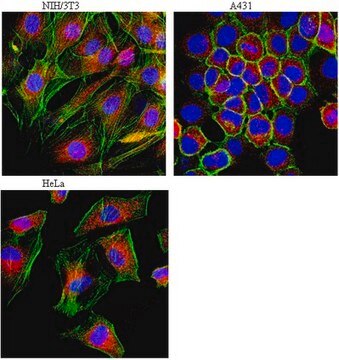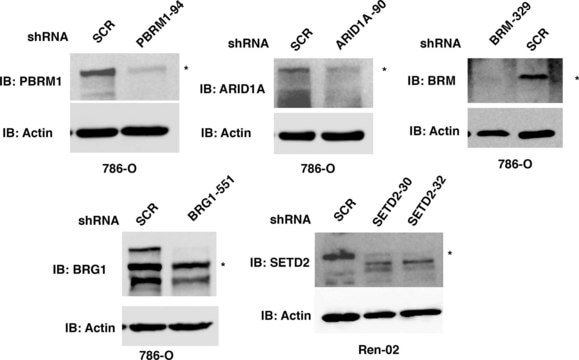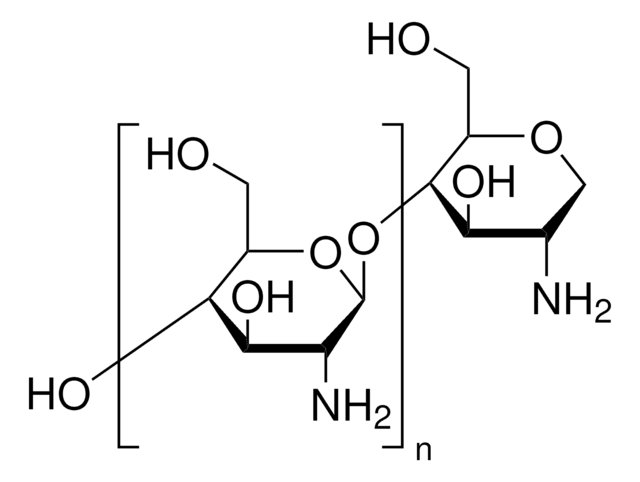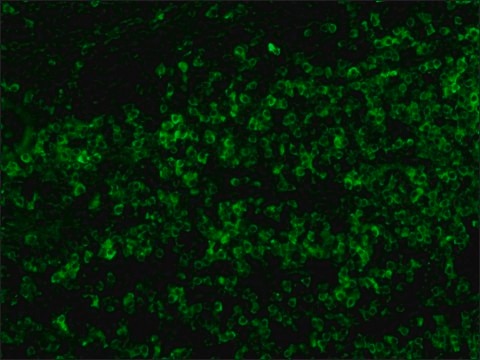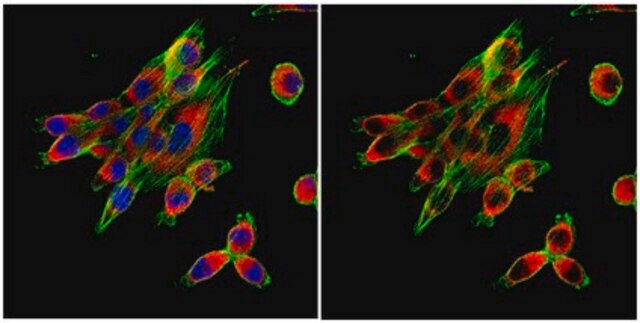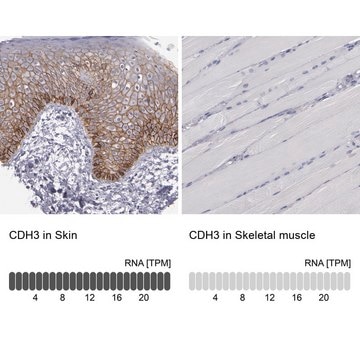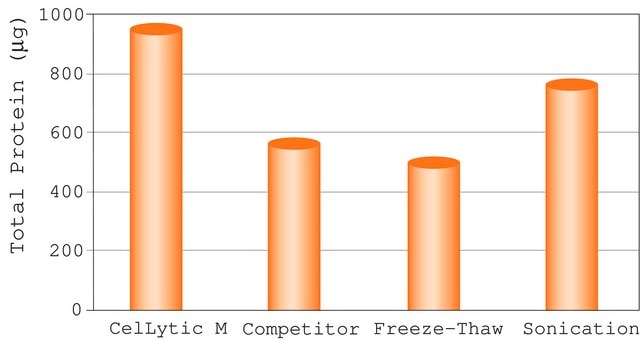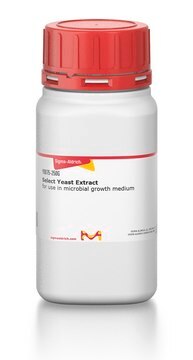AB9882
Anti-Huntingtin-Interacting Protein 1 Related (HIP1R) Antibody
Chemicon®, from rabbit
Synonym(s):
HIP1R
Sign Into View Organizational & Contract Pricing
All Photos(1)
About This Item
UNSPSC Code:
12352203
eCl@ss:
32160702
NACRES:
NA.41
Recommended Products
biological source
rabbit
Quality Level
antibody form
purified antibody
antibody product type
primary antibodies
clone
polyclonal
species reactivity
mouse, rat, human
manufacturer/tradename
Chemicon®
technique(s)
immunocytochemistry: suitable
western blot: suitable
NCBI accession no.
UniProt accession no.
shipped in
dry ice
target post-translational modification
unmodified
Gene Information
human ... HIP1R(9026)
Related Categories
General description
Huntingtin-Interacting protein-1 related (HIP1R) is an actin-binding protein that is considered an element of the clathrin-coated pits and vesicles and polymerizes actin. HIP1R is essential for normal actin organization and endocytosis. HIP1R is equipped with a epsin N-terminal homology domain which allows it to bind 3-phosphorylated inositol lipids, which allows HIP1R to function as a tyrosine kinase stabilizing receptor and plays a role in overall cell growth and survival.
Specificity
Huntingtin-interacting protein 1 related (HIP1R). By Western blot the antibody recognizes a band at ~116 kDa on P2 microsomal fraction from embryonic rat brain.
Immunogen
Synthetic peptide
Application
Detect Huntingtin-Interacting Protein 1 Related (HIP1R) using this Anti-Huntingtin-Interacting Protein 1 Related (HIP1R) Antibody validated for use in WB & IC.
Research Category
Neuroscience
Neuroscience
Research Sub Category
Neurodegenerative Diseases
Synapse & Synaptic Biology
Neurodegenerative Diseases
Synapse & Synaptic Biology
Western Blot: a 1:500-1:2,000 dilution of this antibody detected Huntingtin-interacting protein 1 related (HIP1R) in 10 µg of rat brain extract and mouse brain post-nuclear supernatant.A 1:500-1:2,000 dilution of this antibody detected Huntingtin-interacting protein 1 related (HIP1R) in 10 µg of rat brain extract and mouse brain post-nuclear supernatant.
Immunocytochemistry: a previous lot of this antibody was used by an independent laboratory for IC of human cells. (Poupon, V., et al. (2008). PNAS. 105(1): 168-173.)
Optimal working dilutions must be determined by end user.
Immunocytochemistry: a previous lot of this antibody was used by an independent laboratory for IC of human cells. (Poupon, V., et al. (2008). PNAS. 105(1): 168-173.)
Optimal working dilutions must be determined by end user.
Target description
~116 kDa
Physical form
Format: Purified
Liquid
Storage and Stability
Maintain at -20°C in undiluted aliquots for up to 6 months after date of receipt. Avoid repeated freeze/thaw cycles.
Legal Information
CHEMICON is a registered trademark of Merck KGaA, Darmstadt, Germany
Disclaimer
Unless otherwise stated in our catalog or other company documentation accompanying the product(s), our products are intended for research use only and are not to be used for any other purpose, which includes but is not limited to, unauthorized commercial uses, in vitro diagnostic uses, ex vivo or in vivo therapeutic uses or any type of consumption or application to humans or animals.
Not finding the right product?
Try our Product Selector Tool.
wgk_germany
WGK 1
Certificates of Analysis (COA)
Search for Certificates of Analysis (COA) by entering the products Lot/Batch Number. Lot and Batch Numbers can be found on a product’s label following the words ‘Lot’ or ‘Batch’.
Already Own This Product?
Find documentation for the products that you have recently purchased in the Document Library.
Sophia R Majeed et al.
Nature communications, 5, 3891-3891 (2014-05-24)
The clathrin light chain (CLC) subunits participate in several membrane traffic pathways involving both clathrin and actin, through binding the actin-organizing huntingtin-interacting proteins (Hip). However, CLCs are dispensable for clathrin-mediated endocytosis of many cargoes. Here we observe that CLC depletion
Markus Mukenhirn et al.
Cells, 10(2) (2021-03-07)
One of the most fundamental processes of the cell is the uptake of molecules from the surrounding environment. Clathrin-mediated endocytosis (CME) is the best-described uptake pathway and regulates nutrient uptake, protein and lipid turnover at the plasma membrane (PM), cell
Our team of scientists has experience in all areas of research including Life Science, Material Science, Chemical Synthesis, Chromatography, Analytical and many others.
Contact Technical Service